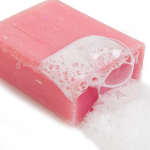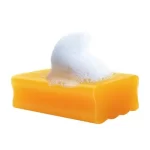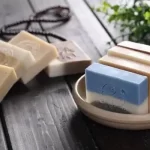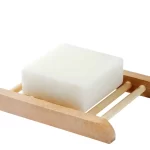Is organic soap better?

Organic soap, simply put, is a natural soap. Use the most natural and good materials to give the skin the most natural care in the most primitive and rustic way. At the same time, it can avoid the damage of chemical maintenance products. Specifically, organic soap is an “organic soap” that is freshly made by hand using traditional European craftsmanship. Use natural and organic products that are beneficial to the skin (must meet organic standards, currently, the most authoritative organic standard in the world is the organic certification of the European Union. For organic soaps, it must meet the organic certification of the land where the materials are grown and cultivated, and organic products certification of organic skin care products, as well as the certification of organic skin care products, are qualified organic soaps with three items at the same time) vegetable oil, nutritious flowers, fruits, medicinal materials, essential oils, etc., through saponification reaction, form “soap”.
Organic soap is characterized by low-temperature production. Once the material is heated, proteins, vitamins, amino acids, and other ingredients, as well as some rare skincare ingredients, will be lost in large quantities. Another feature of organic soap is that it takes a long time to make soap. A piece of organic soap takes at least one month from production to completion. In order to maximize the retention of various nutrients that are beneficial to skin health in the material, organic soap uses a low-temperature method, and the temperature does not exceed 60 degrees. However, under low-temperature conditions, the saponification speed is very slow, generally ranging from 1 to 3 months. At least 1 month.
Organic soap contains natural glycerin, which is an indispensable moisturizing ingredient in skin care products and cosmetics. Generally, large manufacturers of soap will add salt during the manufacturing process to separate glycerin, excess lye, water, and soap base, and form a soap base of 100% pure soap. Then use a large machine to press the soap base into a beautiful shape and sell it. Although such soaps can be used immediately, they lack the essence of organic soaps – glycerin. Organic soaps are exceptionally moisturizing and gentle on the skin. Natural materials are chosen by yourself, only you know your skin type best.
Organic soaps are not only gentle on the skin, but also environmentally friendly. Because organic soaps, unlike chemical cleaners, are broken down by bacteria into water and carbon dioxide about 24 hours after contact with water. Therefore, even if it flows into the river or the sea, it will not cause environmental pollution and will not pose a threat to marine life.
Organic soap uses olive oil, coconut oil, palm oil, and other high-quality pure vegetable oils in the soap-making process, and then adds vitamin E, jojoba oil, and other highly moisturizing special maintenance oils, which can deeply nourish the skin. . There is no continuous heating during the production process, so the nutrients added to the handmade soap will not be destroyed. Give the skin natural care when it is clean~!
The skin of the face needs to be thoroughly cleaned and maintained due to the more time it is exposed to sunlight, air, and dust, and the frequent use of cosmetics containing more chemical ingredients. Organic soap does not contain chemical ingredients, is 100% natural cleaning and moisturizing, a cold vegetable soap suitable for your skin, I personally think that it can completely replace any expensive cleanser and cleansing oil, and it is the best facial cleansing and maintenance product.
Organic soap does not irritate the skin and can better protect the skin. In addition to its amazing cleansing power, it will not damage the stratum corneum of the skin at all. This is because the glycerin contained in it can cleanse the dirt while forming A protective film to protect the skin. Once the stratum corneum of the skin is aging, it will cause the loss of important water, which is one of the reasons why the skin is dry and wrinkled.
For those with sensitive skin, it is recommended to do a skin test on the arm or behind the ear before use. When using, please avoid letting the soap liquid into the eyes. If it accidentally gets into the eyes, it will cause eye pain, but there is no need to panic, just rinse it off with water immediately. When using, you can wet the organic soap, rub it gently with your hands, and apply it after lathering. After using the organic soap, it should be placed in a water-permeable soap box or container, and try to keep the organic soap as dry as possible. Never soak it in water, which will shorten the number of uses. Even very natural materials, do a sensitivity test first.
Organic soaps are good products only if they have passed the EU and French organic certifications, and they must be made in France. Although there is a suspicion of being a foreigner, made in France and is really easy to use. After long-term use, you will find that your skin will improve. Allergic reactions are reduced, dandruff cracks are gone, the skin regains its elasticity, and so on. Europeans discovered the benefits of organic soap early on, and it was all the rage. However, because they cannot be mass-produced mechanized, the shelf life is short, and the cost is high, it has no place in the major brands of skin care products. Now back in fashion, it can be seen as a throwback and throwback to natural skincare.
Copyright 2020, Hebei Guansheng Technology Co.Ltd All Rights Reserved
 Hebei Guangsheng Technology Co.Ltd
Hebei Guangsheng Technology Co.Ltd
 Hebei Guangsheng Technology Co.Ltd
Hebei Guangsheng Technology Co.Ltd






